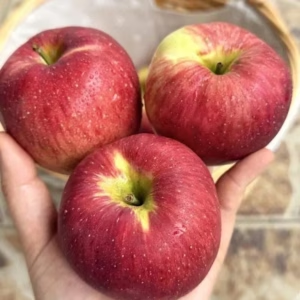Bananas are more than just a convenient snack; they’re a nutritional powerhouse that can positively impact various aspects of your health. Incorporating bananas into your daily diet can offer a multitude of benefits, from supporting heart health to enhancing mood. Let’s delve into the comprehensive advantages of this versatile fruit.
Nutritional Profile of Bananas
A medium-sized banana (approximately 118 grams) contains:
Calories: 105
Carbohydrates: 27 grams
Dietary Fiber: 3 grams
Sugars: 14 grams
Protein: 1 gram
Potassium: 422 mg (12% of the Daily Value)
Vitamin B6: 0.4 mg (20% DV)
Vitamin C: 10 mg (17% DV)
Magnesium: 32 mg (8% DV)
Bananas are also rich in antioxidants, including dopamine and catechins, which help combat oxidative stress and inflammation.
Heart Health and Blood Pressure Regulation
Bananas are renowned for their high potassium content, a mineral essential for heart health. Potassium helps regulate blood pressure by counteracting the effects of sodium and easing tension in blood vessel walls. Regular consumption of potassium-rich foods like bananas is associated with a reduced risk of stroke and heart disease.
Mood Enhancement and Cognitive Function
Vitamin B6 in bananas plays a pivotal role in synthesizing neurotransmitters such as serotonin and dopamine, which regulate mood and cognitive functions. Additionally, bananas contain tryptophan, an amino acid that the body converts into serotonin, promoting feelings of well-being and relaxation.
Energy Boost and Athletic Performance
Bananas provide a quick source of natural energy due to their carbohydrate content. They are particularly beneficial before or after workouts, as they replenish glycogen stores and supply essential electrolytes like potassium and magnesium, aiding in muscle function and preventing cramps.
Digestive Health and Regularity
The dietary fiber in bananas, including both soluble and insoluble fiber, supports digestive health by promoting regular bowel movements and preventing constipation. Bananas also contain prebiotics, which nourish beneficial gut bacteria, enhancing overall gut health.
Sleep Quality and Relaxation
Magnesium and potassium in bananas contribute to muscle relaxation and nerve function, which can improve sleep quality. Consuming a banana in the evening may help some individuals fall asleep more easily and enjoy a more restful night.
Antioxidant Properties and Disease Prevention
Bananas are rich in antioxidants like dopamine and catechins, which help neutralize free radicals and reduce oxidative stress. This antioxidant activity may lower the risk of chronic diseases, including certain types of cancer and cardiovascular conditions.
Bone Health Support
While bananas are not high in calcium, their potassium content helps prevent calcium loss through urine, supporting bone density. Additionally, bananas contain prebiotics that enhance calcium absorption, further contributing to bone health.
Weight Management and Satiety
The fiber in bananas promotes a feeling of fullness, which can aid in weight management by reducing overall calorie intake. Their natural sweetness also makes them a healthier alternative to sugary snacks, satisfying sweet cravings in a nutritious way.
Skin and Hair Health
Bananas’ vitamin C content supports collagen production, essential for maintaining skin elasticity and preventing wrinkles. The antioxidants in bananas also protect the skin from oxidative damage, while the silica content contributes to healthy hair by strengthening strands and promoting shine.
Blood Sugar Regulation
Despite their natural sugar content, bananas have a low to medium glycemic index, meaning they cause a gradual rise in blood sugar levels. The fiber in bananas slows digestion and absorption, helping to regulate blood sugar and insulin levels, making them a suitable fruit choice for many individuals, including those with diabetes.
Incorporating Bananas into Your Diet
Bananas are incredibly versatile and can be enjoyed in various ways:
As a snack: Eat them on their own or with a spread of nut butter.
In smoothies: Blend with other fruits and vegetables for a nutritious drink.
With breakfast: Slice over cereal, oatmeal, or yogurt.
In baking: Use mashed bananas as a natural sweetener in muffins, pancakes, or bread.
Frozen treats: Freeze banana slices and blend for a healthy ice cream alternative.
Considerations and Moderation
While bananas offer numerous health benefits, moderation is key:
Caloric intake: Bananas are relatively low in calories, but consuming them in large quantities can contribute to excess calorie intake.
Potassium levels: Individuals with kidney disorders should monitor potassium intake, as excessive levels can be harmful.
Blood sugar: Those managing blood sugar levels should pair bananas with protein or healthy fats to mitigate potential spikes.
Incorporating bananas into your daily diet can provide a range of health benefits, from supporting heart and digestive health to enhancing mood and energy levels. Their versatility and natural sweetness make them an excellent addition to various meals and snacks. As with all foods, enjoying bananas in moderation as part of a balanced diet is the key to reaping their full health benefits.




